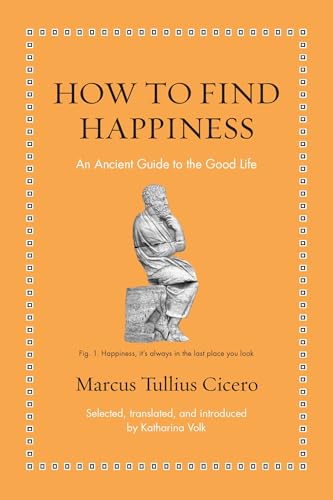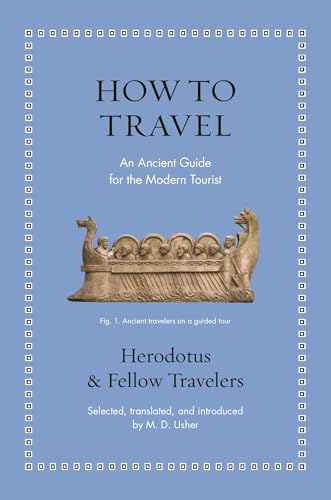
Part of Series
An entertaining and enlightening collection of ancient writings about the philosophers who advocated simple living and rejected unthinking conformity The Cynics were ancient Greek philosophers who stood athwart the flood of society's material excess, unexamined conventions, and even norms of politeness and thundered "No!" Diogenes, the most famous Cynic, wasn't shy about literally extending his middle finger to the world, expressing mock surprise that "most people go crazy over a finger." When asked why he was called Diogenes the Dog, he replied "because I fawn on those who give, I bark at those who don't, and I bite scoundrels." How to Say No is a delightful collection of brief ancient writings about Cynicism that captures all the outrageousness, wit, and wisdom of its remarkable cast of characters—from Diogenes in the fourth century BCE to the column-stander Symeon Stylites in late antiquity. With their "less is more" approach to life, the Cynics speak urgently to our world of climate change, economic uncertainty, and psychic malaise. Although the Cynics weren't writers, their memorable utterances and behavior were recorded by their admirers and detractors, and M. D. Usher offers fresh new translations of appealing selections from this body of writing—ranging from street sermons and repartee to biography and snapshots of Cynics in action. Complete with introductions to the volume and each selection as well as the original Greek and Latin on facing pages, this lively book demonstrates why the Cynics still retain their power to surprise us and make us laugh—and to make us think and question how we live.
Author

Diogenes of Sinope (Greek: Διογένης ὁ Σινωπεύς, Diogenēs ho Sinōpeus) was a Greek philosopher and one of the founders of Cynic philosophy. Also known as Diogenes the Cynic (Ancient Greek: Διογένης ὁ Κυνικός, Diogenēs ho Kunikos), he was born in Sinope (modern-day Sinop, Turkey), an Ionian colony on the Black Sea, in 412 or 404 BCE and died at Corinth in 323 BCE. Diogenes of Sinope was a controversial figure. His father minted coins for a living, and when Diogenes took to debasement of currency, he was banished from Sinope. After being exiled, he moved to Athens to debunk cultural conventions. Diogenes modelled himself on the example of Hercules. He believed that virtue was better revealed in action than in theory. He used his simple lifestyle and behaviour to criticise the social values and institutions of what he saw as a corrupt society. He declared himself a cosmopolitan. There are many tales about him dogging Antisthenes' footsteps and becoming his faithful hound. Diogenes made a virtue of poverty. He begged for a living and slept in a large ceramic jar in the marketplace. He became notorious for his philosophical stunts such as carrying a lamp in the daytime, claiming to be looking for an honest man. He embarrassed Plato, disputed his interpretation of Socrates and sabotaged his lectures. Diogenes was also responsible for publicly mocking Alexander the Great. After being captured by pirates and sold into slavery, Diogenes eventually settled in Corinth. There he passed his philosophy of Cynicism to Crates, who taught it to Zeno of Citium, who fashioned it into the school of Stoicism, one of the most enduring schools of Greek philosophy. None of Diogenes' many writings has survived, but details of his life come in the form of anecdotes (chreia), especially from Diogenes Laërtius, in his book Lives and Opinions of Eminent Philosophers. All we have is a number of anecdotes concerning his life and sayings attributed to him in a number of scattered classical sources. Diogenes was born in the Greek colony of Sinope on the south coast of the Black Sea, in either 412 BC or 404 BCE. Nothing is known about his early life except that his father Hicesias was a banker. It seems likely that Diogenes was also enrolled into the banking business aiding his father. At some point (the exact date is unknown), Hicesias and Diogenes became embroiled in a scandal involving the adulteration or debasement of the currency, and Diogenes was exiled from the city. This aspect of the story seems to be corroborated by archaeology: large numbers of defaced coins (smashed with a large chisel stamp) have been discovered at Sinope dating from the middle of the 4th century BCE, and other coins of the time bear the name of Hicesias as the official who minted them. The reasons for the defacement of the coinage are unclear; Sinope was being disputed between pro-Persian and pro-Greek factions in the 4th century, and there may have been political rather than financial motives behind the act. It was in Corinth that a meeting between Alexander the Great and Diogenes is supposed to have taken place. The accounts of Plutarch and Diogenes Laërtius recount that they exchanged only a few words: while Diogenes was relaxing in the sunlight in the morning, Alexander, thrilled to meet the famous philosopher, asked if there was any favour he might do for him. Diogenes replied, "Yes, stand out of my sunlight". Alexander then declared, "If I were not Alexander, then I should wish to be Diogenes", to which Diogenes replied, "If I were not Diogenes, I should also wish to be Diogenes." In another account of the conversation, Alexander found the philosopher looking attentively at a pile of human bones. Diogenes explained, "I am searching for the bones of your father but cannot distinguish them from those of a slave."


